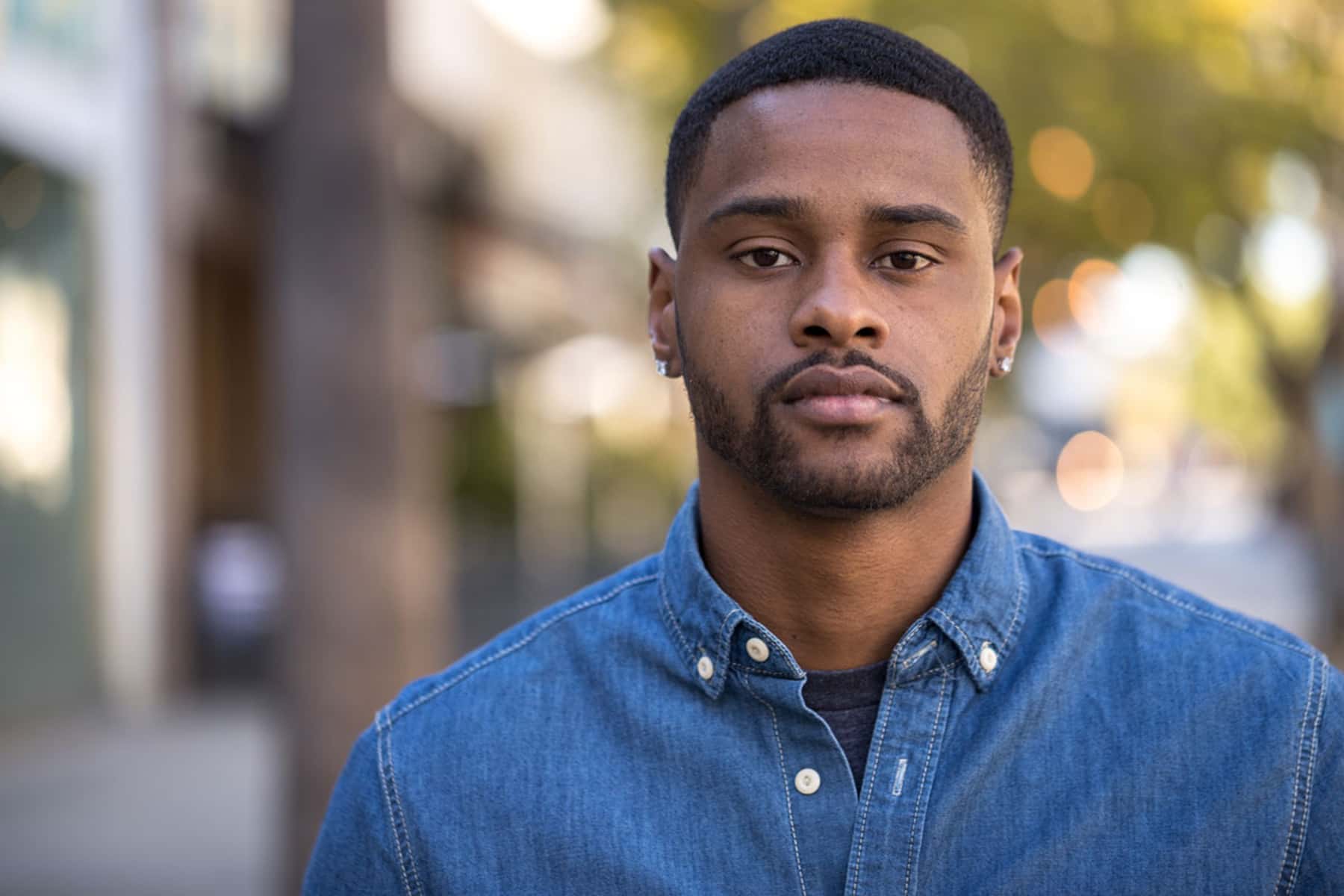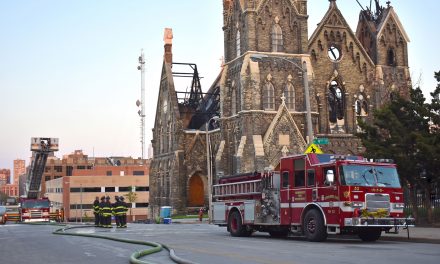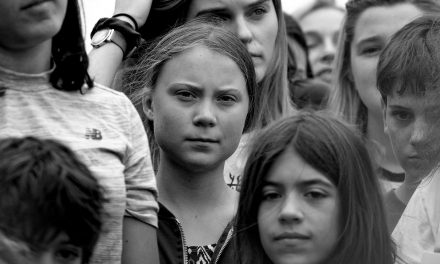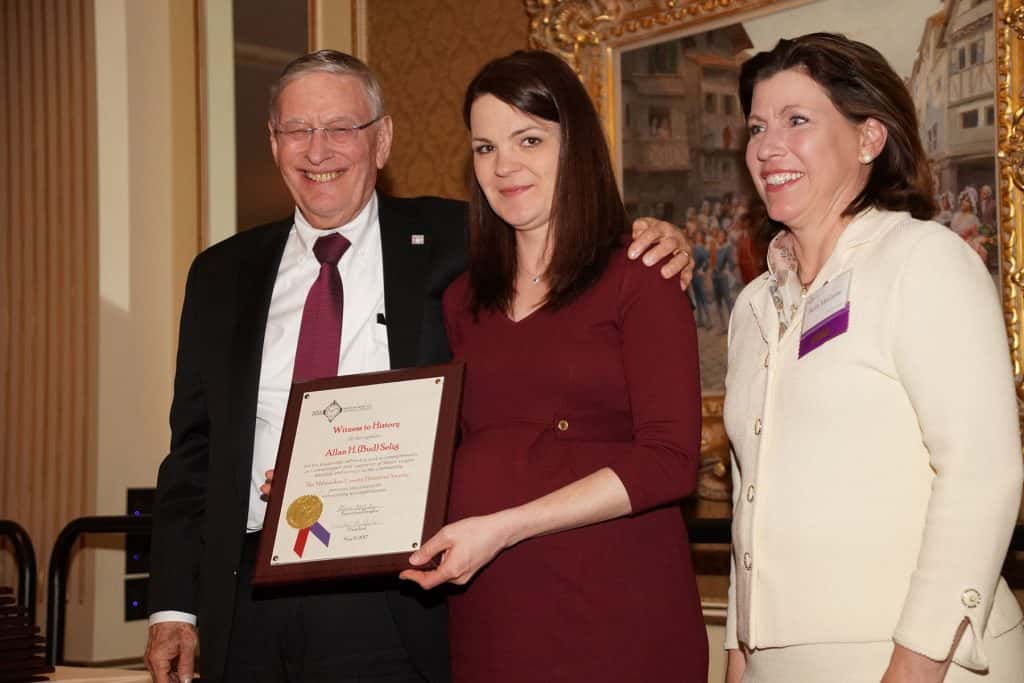
Another modern day lynching occurred on February 23, when an innocent black man was shot and killed while jogging by a white father and son in suburban Georgia. It follows a long timeline of such violence directed at men of color, and a particular flashback to the 2012 shooting of Trayvon Martin. Years later the same question remains: why do black men look suspicious to white eyes?
Casual denim shirt, unassuming look on my face. Nothing special. But to you, does that mean there’s something up my sleeve? To many I may “fit the profile,” but still have done nothing wrong.
What if I do nothing, yet still look suspicious? Suspicious enough to get shot, beaten, or arrested. At times, based solely on one’s perception. A perception fueled by the subjective reality of those emboldened and small enough to act upon it. A reality shaped by the steady metronome beat of false and intentionally propagated assumptions about “the other,” about race, and about a Black man.
To some I look trustworthy, but to others I am suspicious. In their eyes, the smile hides something much more nefarious. Either way, your reaction to me, and how you choose to respond, is based only on your lived experience. Only your interpretation of what I represent. And when you act on this unproven interpretation, should I be responsible for that?
Am I deserving of the onslaught of your ignorance, your projection of assumptions. Whether projection by stare or glare, through words of hate, or by bullets that pierce my body, how am I responsible? When your assumptions are proven wrong, are you contrite? Do you have the power to undo the damage that was done, and to find the life that has now been lost.
Then again, you never know. If the time was taken to get to know me, you could find out that I’m quite trustworthy, intriguing, and “not like the others.” Yet, once again, nothing to do with me, only your experience. I am who I am and you will only begin to know this once dialogue begins. It may confirm your thoughts, or abruptly cause you to think anew of what you have been taught. Regardless, such a dance of dialogue – that is merely entertaining its relevance or necessity to stave off tragedy, is a fools errand in a nation where such fools kill.
There was no dialogue the day Ahmaud Arbery was murdered. There was never a chance. In the bias eyes and dark hearts of those who killed him, a moment for an honest conversation wasn’t warranted. Generations of assumption, racism, pathos, and entitlement were all laser-focused by a father and son – then projected into the body of an innocent man.
Their beliefs, their definition of being “suspicious” set the grim wheels in motion. That unfounded suspicion served as cover for an intention that began to unfold long before the glorious day of Arbery’s birth.
A black man was jogging on a sunny day in Georgia. The sounds of spring audible, yet weeks away, the cadence and rhythm of running shoes, inhale, exhale, birds singing, all disrupted and replaced by exhaust pipes, chaos, shouts, grabbed flesh, gasps of fear, spit, sweat and gunshots. No more running, one last breath. None. Only silence. Silence that echoed as the body of a man focused only on jogging hit the asphalt. Silence where he stopped to try and save his own life. A silence broken miles away by shrieks of loss echoing through a cell phone. Cries of anguish as texts are read about a friend, a son, cousin and brother who is dead. Anger and the pounding of a fists on tables across the nation as the video of his assassination is shown for all the world to see.
A street in rural Georgia, doubling as a makeshift courtroom where a bastardized version of justice was systematically orchestrated by a father and son judge, jury, and executioner. Centuries of entitlement serving as a law degree, racism masquerading as suspicion, and gunshots as background music for the mantra song of Making America Great Again.
Ahmaud Arbery was murdered because he was jogging on a street in Georgia.
Does his death make you suspicious?
Where do your suspicions take you? In an era where a man can be gunned down for exercising. Murdered. Hunted down while jogging for all the world to see. Where do your perceptions take you when you watch it unfold on your mobile phone, TV, or laptop. What do you think of our nation when you see an innocent man die alone on the street. Die while the murderers drive away. Free.
It’s as if nothing’s changed. Nothing changed? Have things changed?
James Byrd. Emmitt Till. Medgar Evers. Trayvon Martin. Ahmaud Arbery. What has changed?
It did not change in time for Ahmaud. And thus, how much time is there for others going for a jog, shopping at a WalMart, standing in their backyard, or sitting in a car? How much time is left if the actions of insecurely grandiose individuals continue to be fueled by their assumptions of the other.
As these murders mount by those who look like that father and son, and the outcry is limited only to those affected, what new assumptions are being formed. How much “suspicion” is growing across the country? How many other judges, juries, and executioners are in their trucks, basements, or simply relaxing on the couch waiting for the opportunity to dole out what they believe is justice?
Such heinous acts are so blatant for some that it empowers self-righteousness among those who “would never do such a thing,” while failing to recognize they would never do anything to stop it, to speak out or to take a stand.
Maybe now is the time to put such piety aside and instead question your assumptions about “the other.” And also be suspicious of yourself. Because no matter your station in life, you are “the other” to someone else. Question your long held assumptions about right and wrong and explore the origin story of your beliefs.
And then, time and empathy permitting, try and grasp the emotional pain, loss and fear that defined the last minutes of Ahmaud’s life. Dare to attempt to put yourself in his running shoes. Looking into the eyes of a hateful, emboldened and entitled father and son. Trying to negotiate their hatred, protect himself, while also navigating the thoughts of those he loves, his embrace of life, aspirations and the brutally condensed realization that it all ends now. Question your assumptions about justice as you envision lying on hot asphalt as your blood blends in with oil stains, tire tracks and eroding leaves caked onto the road below..
Lift yourself from this reflection and ask yourself if you are moved. You are alive, there is no blood on the ground beneath you, nor stained in your shoes. Are you moved? Have you changed your assumptions about right, wrong, and the America we now live in? Be honest with yourself. Ask no one but yourself for insight and guidance.
Are you moved by this?
If not, then do not wince, do not recoil. Own who you are. Not in private, but publicly proclaim that you are okay. Identify yourself as the one that others should now be suspicious of. Own this, but acknowledge that such acts of hatred continue through silence and that they are emboldened – not only by racists in pickup trucks, but also through inaction in the face of hate and at the hands of those who do nothing.
Ahmaud is dead because he was a black man jogging on a beautiful day in Georgia. His murder can be viewed on youtube, rewound, frame by frame in high definition. An HD lynching streaming at 5G speed with a plot that is centuries old. I have not seen the video, because I have seen it before. Once again, blood was spilled by hate and ignorance, and those who took a man’s life roamed free in America.
This is a stain that will never wash away, and the blood will always land easily on those who stand there and do nothing. Today, as before, the scene of the crime will be cleaned up, then adorned with makeshift memorials, and vigils of dried flowers that will eventually be removed. But questions will remain for the silent and the unmoved.
Is there any blood on their hands? Is there any blood on your hands? Now is as good a time as any to check.














